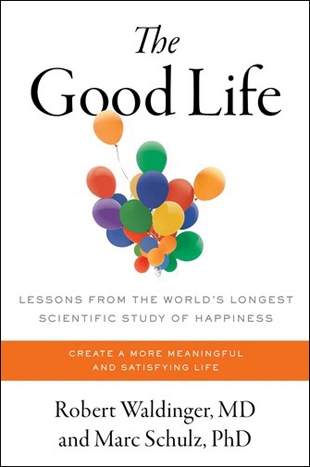The basis of this book is a scientific study performed by the Harvard Study of Adult Development with individuals over the course of eighty years of life. Its results — and the authors’ corresponding conclusions — are multifaceted, but all center around one certainty: Relationships matter more than anything else to human happiness.
What makes a good life? Why do some people flourish more than others? Many, many things, of course, are factors, but the authors — a professor of psychiatry at Harvard Medical School plus the associate director of the study itself — say: “Among the many predictors of health and happiness, from good diet to exercise to level of income, a life of good relationships stands out for its power and consistency.”
“People who are more connected to family, to friends, and to community, are happier, physically healthier, and live longer than people who are less well connected.”
They encourage readers to invest in their relationships and repair them as necessary; for those with partners, to look more closely at “the person beside you” and how to deepen that most essential connection; and for those who have become estranged from members of their nuclear families, to go back and try again to repair those relationships. Each is like a tendril to one of our leaves of happiness and contentedness in life.
The authors write: “It can be tempting to believe that each of us has more control over our own fate than we actually do. The truth is that we are all embedded in ecologies bigger than ourselves that shape us in profound ways.”
